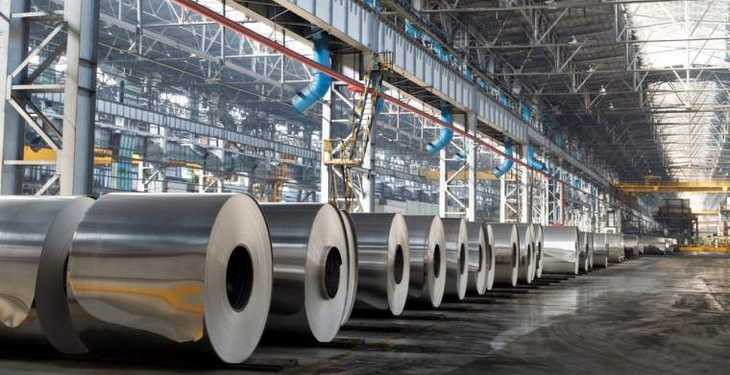Bogdan Tudorache
ALRO Group registered a turnover of RON 2.78 billion, slightly lower compared to the similar period of 2018, namely RON 2.98 billion, mainly as a result of the unfavourable international and national market conditions.
In 2019, the Group registered a net loss of RON 67 million compared to a net profit of RON 235 million, in 2018. The significant decrease in results was a direct consequence of a continuous downward trend of the LME and tough conditions on the international market (including US Government policies regarding the imposed aluminium tariffs, US-China trade war, the Brexit negotiations, higher costs for utilities and on the alumina segment, Norsk Hydro’ Alunorte alumina refinery restarting its production), as well as on the local market, where the Company had to face increased prices especially for energy that continued to report high levels in 2019.
“Facing adverse circumstances in the market, where LME showed a 15% decrease in 2019 compared to 2018, alumina market affected by excess output that led to downward selling prices, higher utility prices (energy and gas) in 2019 versus 2018, with increased acquisition prices for 2020, we implemented an anti-crisis program containing cost reductions and cash flow optimization measures for H2 2019 and 2020”, said Marian NĂSTASE, Chairman of the Board of Directors of ALRO.
“We postponed the investments except the maintenance CAPEX and those compulsory from an environmental and energy efficiency point of view, we lowered the inventories level, we minimised the scrap acquisitions in line with the flat-rolled products demand. Furthermore, we reduced the raw materials level, limited the aluminium electrolytic production by decreasing the energy intensity and delaying some capital repairs for the pots, collectively with a change in sales mix structure by raising the quantities of very high value added products. All these measures helped us to limit our losses for 2019”.
Last year continued the trend reflected by 2018 and the global market showed fragility being marked by uncertainties such as the risks of higher production output and state-subsidised excess capacity in China, both for primary and processed aluminium; the US Government aluminium tariffs and new policies for potential imposed barriers; Alunorte activity resuming; macro-economic uncertainty; climate change policies, Brexit updates etc. The slowdown in demand and the effect of the US-China trade war were mainly visible for Germany, the heart of Europe along with the sharp decline in the car industry, which has been disrupted by new EU emissions rules and a shift towards the electric vehicle. Outside Germany, the picture remains decidedly combined with weaker demand amidst suppliers of parts and components to the German manufacturing industry weighed against good demand from the construction, truck and trailer, marine and can sheet industries.
Moreover, in 2019, the aluminium industry was one of the main players of the new global level regarding law and regulations, taxes, environmental protection, CO2, green certificate prices and allocations. As a direct consequence, LME quotations decreased while the raw materials prices increased with a direct impact on the financial results of all major companies in the aluminium industry. In 2019, LME continued its decreasing trend as showed at the end of 2018, leading to an average price for 2019 of 1,791 USD/tonne compared to the LME average price recorded for 2018 of 2,110 USD/tonne and 1,969 USD/tonne in 2017.
Nevertheless, aluminium remains one of the strongest vectors for decarbonisation of the economy with an increasing role in mobility solutions (electric cars), cargo and freight (aluminium railway cars), in deployment of a wider solutions for renewables (aluminium frames for solar panels) and lighter, energy-friendly buildings. Also, the New Green Deal which will position Europe as a global leader for the fight against climate change, based on the impact studies which are either in progress or about to be launched at the European and member state level, will reaffirm the importance of aluminium as vector of decarbonisation and one of the key elements to achieve both the 2030 and 2050 targets.
At national level, the main influencing factor on ALRO’s business in 2019 was represented by the high energy price as a result of boosted taxes on energy and the significant increase in CO2 emission prices. However, at the end of December 2019, the Romanian Government issued an Emergency Ordinance for amending GEO no.115/2011 through which the Romanian Government committed itself to implementing a State aid scheme to compensate significantly impacted by the EU-ETS Directive for a share of their indirect emission costs, as passed through in energy prices.
For ALRO, as well as for companies from other 15 Romanian industrial sectors and 8 subsectors, these compensations have the role of counteracting the high energy price on the overall cost. Moreover, the source of funds for the actual compensation comes from the auctioning of the greenhouse gas emission certificates attributed freely by the European Union to Romania. Therefore, the scheme is supported directly from this mechanism implemented across the European Union and is not affecting the rest of the Romanian consumers.
